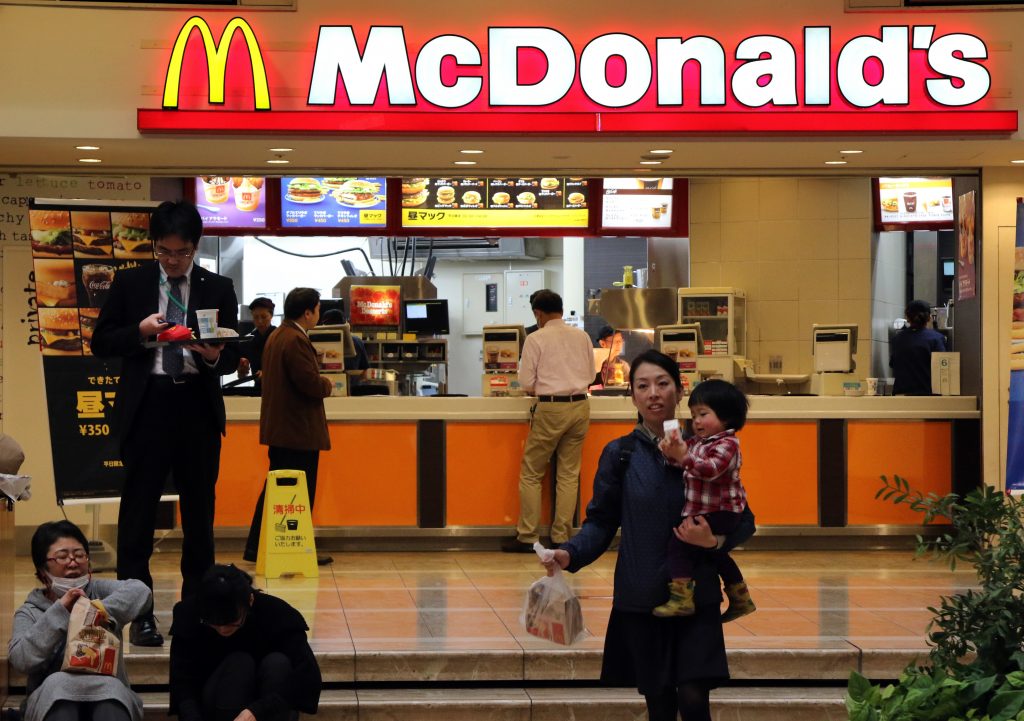
- ARAB NEWS
- 03 Jul 2025
Since 1975
TOKYO: Department stores and eateries in Japan are starting to reopen after the government lifted the state of emergency for 39 out of the 47 prefectures Thursday amid improvements in the nation's coronavirus situation.
It is unlikely, however, that their sales will recover quickly. They need to find their own answers on how to fight COVID-19 at their outlets, including how to protect employees and customers and how to prevent selling spaces from getting crowded.
Department store operator Takashimaya Co., which had kept only the food sections open at all outlets, fully reopened its stores in Takasaki, Gunma Prefecture, eastern Japan, and in the western city of Okayama on Monday.
Both are outside the eight prefectures where the state of emergency remains in place, including Tokyo.
On Thursday, selling spaces for a wider variety of goods, but excluding those for jewelry and some others, reopened at three outlets in the Tokyo metropolitan area, including one in Tokyo.
Takashimaya also plans to fully reopen a store in the central Japan city of Gifu on Saturday and two outlets in Nagoya, also in the central region, next week. Both are in the regions where the emergency was lifted.
J. Front Retailing Co. reopened the Daimaru department store in the western city of Kochi on Monday and the Matsuzakaya store in the central city of Shizuoka on Wednesday.
In the regions still placed under the state of emergency, the company will fully reopen 10 stores Tuesday only for weekday operations, including Daimaru outlets in the western cities of Osaka, Kyoto and Kobe.
Isetan Mitsukoshi Holdings Ltd. will reopen from Saturday nine outlets in six prefectures where the emergency was lifted, including Niigata in central Japan, Miyagi in the country's northwest and Fukuoka in the southwestern region.
Department store operators have measures to prevent infections in place, including setting up plastic sheets at store counters and limiting entry when selling spaces are crowded.
The Japan Department Stores Association and 11 other organizations involved in the distribution industry jointly compiled guidelines to prevent the spread of infections Thursday.
But "measures included in the guidelines have already been implemented," an official of a major department store chain. "Department store operators have to try and find individually what is needed for their own selling spaces.
"We have no choice but to open stores in order to meet customer requests and maintain employment," said a Takashimaya official. But it is not clear how customers will respond.
Among eateries, McDonald's Holdings Co. (Japan) has started gradually reopening eating spaces at some 1,440 outlets in the 39 prefectures where the state of emergency was lifted.
In the eight prefectures still under the state of emergency, McDonald's will continue limiting its services to takeouts and deliveries.
Skylark Holdings Co. put back the closing time for its family restaurant chains from 8 p.m. to 10 p.m. in 27 prefectures on or after Monday.
At Zensho Holdings Co.'s Sukiya beef-on-rice bowl chain, some outlets with shortened business hours will return to normal operating times.
"Yakitori" chicken skewer chain Torikizoku Co., which has shut all its directly operated outlets, hopes to restart soon. "We are glad about the lifting. We want to reopen as quickly as possible so that we can continue our business," an official said.
JIJI Press